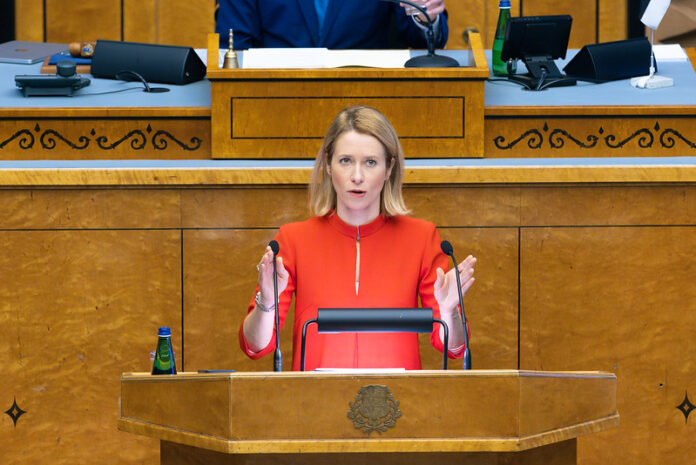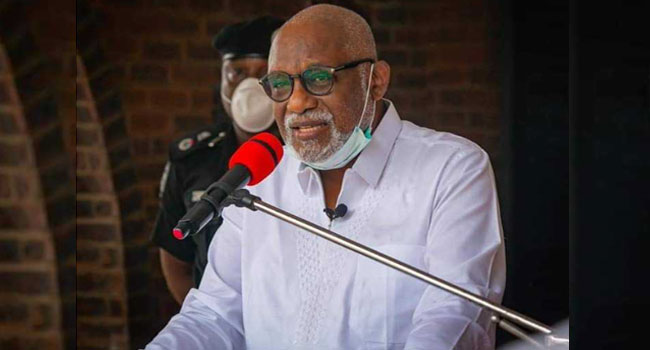Riigikogu, 12 December 2023 – In her annual European Union speech to Riigikogu, Prime Minister Kaja Kallas focused on supporting Ukraine and the future of the European Union.
Kallas began her presentation with the statement that Estonia’s membership of the European Union and NATO is the cornerstone of our security. The importance of this is clearly confirmed by Russia’s full-scale aggression against Ukraine and against Ukraine’s right to freely choose its future. We must continue to support Ukraine and, together with other European countries, strengthen our defence capabilities.
“Ukraine continues to fight every day also for our freedom. If we do not want to think about war now or in the future, we must think about Ukraine right now. If we consider it possible in Europe to do more or give more, we must do it right now and immediately,” said Kallas. “I want to believe that we will be able to agree during this week’s European Council on sanctions, the use of frozen assets, economic and military assistance, and on Ukraine’s accession negotiations invitation, and thereby encourage all the other countries in the world. Putin must understand that time is against him, not in his favour,” stressed Kallas.
According to Kallas, geopolitical and value-based grey areas create unnecessary tensions within Europe. She welcomed the new impetus given to European integration. “I am particularly pleased that Croatia became the 20th member of the euro area on January 1, and Finland became a member of NATO in April. Bulgaria and Romania have earned their Schengen membership, and we keenly look forward to Sweden joining NATO.” From promises to action, we must move forward with the enlargement of the European Union. “In order to ensure that the promises of the Thessaloniki and Versailles Summits do not become empty promises, it must be decided in December to invite Ukraine and Moldova to accession negotiations and to open negotiations if the conditions are met. It is no exaggeration, to use the Ukrainian Foreign Minister’s expression, that these conditions are met with the blood of Ukrainians”.
She added that nothing would show the credibility of the European Union more clearly than the decision to propose a deadline when the organisation is ready for the admission of up to ten new members who have implemented their national reforms. Year 2030 would be a very logical year for such a choice, because that is when the new long-term EU budget will be implemented and the new post-2029 institutions will be established. Kallas also stated that the enlargement of the European Union and the necessary changes can be carried out without amending the Treaties.
Speaking about the near future of Europe, Kallas emphasised that increasing Europe´s defence readiness is one of Estonia’s priorities. “For us, this goal in the near future means that the defence plans approved at the NATO Vilnius Summit will be implemented,” she explained. It is also important to increase EU defence production, inter alia, in order to fulfil the promise to send one million artillery shells to Ukraine.
Kallas said that the broad-based approach of national defence, implemented by Estonia and Finland, should become the norm for the whole of Europe, if we want to effectively repel attacks on infrastructure, free speech, minorities and the democratic system, and to see positive developments also in the immediate vicinity of Europe.
According to the Prime Minister, the internal market and competitiveness of the European Union were impacted by the crisis. It is important that Member States implement reforms and investments to improve competitiveness and productivity. “There are also simple things to do, such as ending exemptions for public debt and state aid. A competitive advantage bought with the help of a taxpayer is like a wood chip fire, it doesn’t last very long,” said the Prime Minister.
She added that the government is making efforts to ensure that Estonia gets the maximum benefit from the investments made available by the European Union. “I am pleased to say that only Estonia and Lithuania were able to make full use of the funds for the 2014-2020 budget period, which has just ended. I note that while the average level of government investment compared to GDP in the EU is within three per cent, in Estonia it is above five per cent and will remain one of the highest in the EU throughout the next four-year state budgeting period. We will do our best to ensure that the investments of this period also reach the people of Estonia,” said Kallas.
According to her, in cooperation with the other Baltic countries, it has been possible to accelerate the project of synchronisation of electricity systems with continental Europe by one year, improve energy supply and connections. Work continues on the timely completion of the Rail Baltic main line in order to ensure EU support and funding. We also hope, with the help of the European Commission, to pay more attention to monitoring and securing critical infrastructure.
Kallas concluded her speech with the words: “The European Union has never before had to face a pandemic and the consequent global lock-down, as well as a military conflict on the scale of the World War and the wave of refugees triggered by it. With all the possibilities, limitations, experiences and global changes, today’s European leaders have handled the crisis excellently. I am justified in saying that this is the kind of capable and determined Europe we wanted.”




